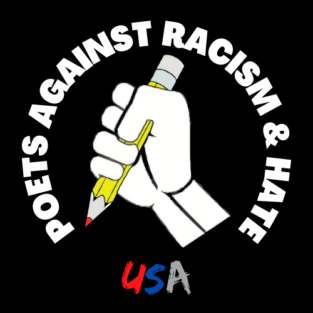In the workshop PARH USA offers, we quote the Poetry Foundation’s editorial staff, which wrote, “Poetry is commanding enough to gather crowds in a city square and compact enough to demand attention on social media.” Believing, as we do, in the power of poetry to confront racism, bigotry, and hate, our goal with this blog post is to encourage you to write! Here are five prompts you can use to develop your next social justice poem. And if you do create something, we hope you’ll submit it for consideration as a PARH USA Featured Poem!
Prompt 1: Found Poetry
Choose a news article, post, or speech and pull out 10–15 words. Use all those words to write a new poem exploring a social justice topic. Another approach to this concept is to use the blackout technique: circle words, blacking out the rest, to create a poem touching on a related or completely unrelated concept.
Prompt 2: Object Personification
Write a poem in the voice of an object that is commonly associated with social justice issues. Examples include handcuffs, a gun, an article of clothing—use your imagination! The more unusual or surprising the object, the more opportunity there is to explore an aspect of unjust interactions that would otherwise go unnoticed or unexplored.
Prompt 3: Protest Song Response
Listen to a song associated with social justice causes and write a poem—or song lyric—in response. The song can be contemporary or from an earlier era.
Prompt 4: Visual Art Response
Choose a painting, a photograph, or another piece of visual art that tackles social injustice and write an ekphrastic response.
Prompt 5: Response Poem
Read through works in Poets Against Racism & Hate USA’s Featured Poem archive, choose a poem, and then write a response. Your response can be one poem or several poems, or a nested poem with several sections. You could also experiment with form using this prompt.
We hope you find these prompts to be inspirational and useful. We look forward to your submissions resulting from this blog post or any other effort you make to give voice to the emotions you want to share in the face of injustice. As you write, be aware of these questions (taken from our workshop):
- What emotions do I feel when I think about my topic?
- What issue related to my topic is most important to me?
- What thought about my topic is obsessing me?
- What about my topic is most upsetting to me right now?
- What about this topic feels personal to me?
- Do I feel apprehensive about writing this poem? If yes, why?
Then, pick up your pen and write.
